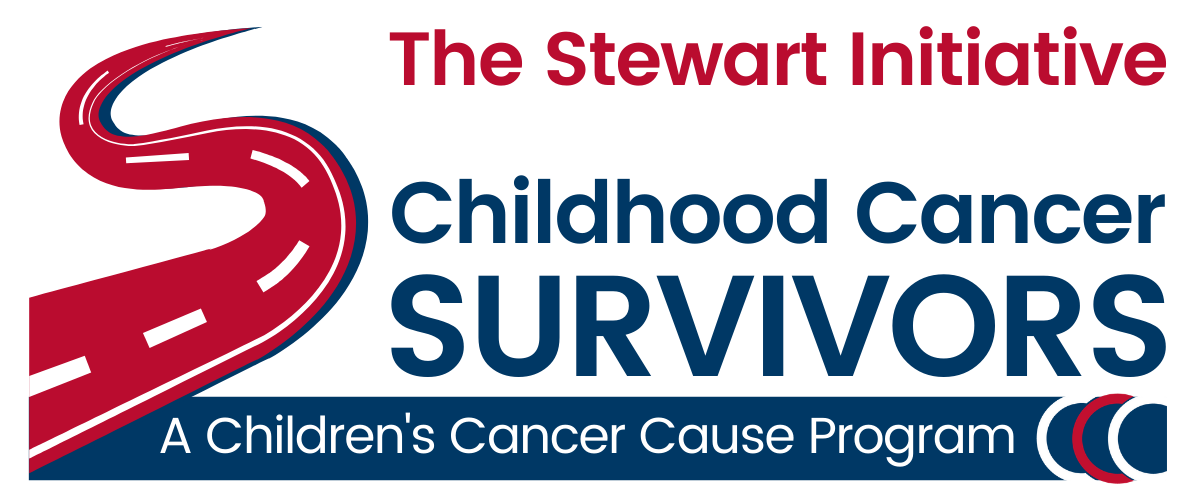Managing your healthcare for the first time as a young adult can be overwhelming. This section walks you through your coverage options and helps you become a more informed health insurance consumer.
In the Children’s Cancer Cause 2025 Survey, survivors reported health coverage issues and gaps, specifically when aging off of parents’ insurance, switching jobs, or changing plans.
The Critical Year: If you’re under 26 years old, you are likely eligible to remain on your parent’s healthcare plan, even if you’re married, in college, or have a child of your own. But your parents will need to check with their employer to make sure their plan or state doesn’t have different rules. As you approach your 26th birthday, you’ll need to have a plan in place for healthcare coverage of your own. Healthcare.gov offers a helpful page for young adults about to age out of their parent’s coverage.
Have insurance but not sure how to navigate it?
If you need help with the basics, the Department of Health and Human Services provides a handy overview in this Roadmap to Better Care PDF. This user-friendly document provides a glossary of common insurance terms like “In network Copayment” and “Explanation of Benefits (or EOB),” as well as a guide to reading your insurance card and tips for preventing health care fraud.
HHS provides a list of questions to ask yourself about your insurance plan. If you don’t know the answers to these questions, it is recommended that you contact your insurance plan or state-run policy provider to find out the answers:
How much will I have to pay for a primary care visit? A specialty care visit? A mental health visit? A trip to the emergency room? Is the amount different for an ‘in-network’ or ‘out-of-network"‘ provider?
How much do I have to pay for prescription medicine?
What is my deductible?
Do I need a referral to see a specialist?
What services are not covered by my plan?
Uninsured or shopping for new coverage?
Although there are still considerable gaps in access to quality care for survivors, the Affordable Care Act, passed in 2010, cut the nation’s uninsured rate in half and has helped survivors overcome many of the barriers that previously existed.
Prior to full implementation of the ACA, adult survivors of childhood cancer were denied health care coverage more often than cancer-free siblings, paid more out-of-pocket for their health care, were more likely to borrow money to pay for health care, and were more likely to skip prescription refills due to cost (source: JAMA study). Unfortunately, survivors still encounter problems with claims for certain late effects like infertility care, preventive screenings, and quality-of-life drugs such as hormone therapy. Survivors in our annual survey also mention high out-of-pocket expenses including monthly medication costs of several hundred dollars and large deductibles for emergency room visits. While there’s still much more work to be done to improve the healthcare landscape, here’s what you should know about protections that do exist.
Provisions of the ACA that may apply to childhood cancer survivors:
No lifetime and annual limits: Prohibits a health plan from putting annual or lifetime dollar limits on most benefits you receive.
Prohibition on rescissions: Prohibits a health plan from rescinding coverage of an enrollee except in the case of fraud or intentional misrepresentation of material fact.
Dependent coverage: Young adults can stay on their parents’ insurance plan until they turn 26 years old (until December 31st of the year in which they turn 26).
Pre-existing condition protections: Prohibits pre-existing condition exclusions or discrimination on the basis of any health status-related factor. Learn more.
Guaranteed Renewal: Requires that your health insurance issuer must offer to renew your policy as long as you continue to pay premiums. Except in some states, guaranteed renewal doesn't limit how much you can be charged if you renew your coverage.
Prohibition on excessive waiting periods: Prohibits a health plan from imposing excessive waiting periods, or those that exceed 90 days in length.
Essential Health Benefits: Require that qualified plans provide a set of "essential health benefits" that include mental health, prescription drugs, preventive services, and chronic disease management. Learn more.
Federal and State Health Insurance Access Programs:
Healthcare.gov
If you do not have healthcare coverage through a job or one of the other options listed in this section, you are likely eligible to find coverage through the Health Insurance Marketplace at Healthcare.gov. Most people qualify for savings, which is based on household income.
Open Enrollment for plans in the Marketplace is from November 1 - January 15th. However, if you aged out of your parent’s plan by turning 26 or lost coverage in some other way, you’re eligible for a Special Enrollment Period.
New in November 2025 for people insured through the Marketplace with an annual household income below 200 percent of the federal poverty level, the HealthWell Foundation has launched a new fund to provide premium assistance of up to $2,000 to individuals who have obtained health care coverage through the Marketplace. Find out if you're eligible and apply here.
Medicaid
Medicaid is a health insurance program sponsored by the federal and state governments that helps many people who can't afford to pay for some or all of their medical bills. If you have a low or modest household income, you may be eligible for free or subsidized health coverage for yourself or members of your family. Eligibility varies by state and may factor in household size, disability, family status, and other factors. Some states have adopted Medicaid expansion under the Affordable Care Act, which enables individuals to qualify for coverage based on income alone.
Children's Health Insurance Program
The Children’s Health Insurance Program (CHIP) provides health insurance to children whose families earn too much money to be eligible for Medicaid but not enough money to buy private health insurance. Families must meet other requirements to be eligible.
There is no enrollment period for Medicaid and CHIP. If you qualify, coverage can begin immediately. The specific names of these programs vary state-by-state. Learn more about Medicaid and CHIP.
Student Health Plan
If you’re in college, you may be able to enroll in a student health plan through your school. This is intended to be an easy and affordable option for students, but it’s not your only option. Students are eligible to apply through the Marketplace if they’d prefer. If you’re shopping for a plan on Healthcare.gov with the intention of switching from a student plan to a Marketplace plan, select “No” when the site asks if you have health coverage.
Medicare
Medicare is a federally run health insurance program for people 65 and older and also for people with disabilities. Your cancer history may make you eligible as having a disability so there may be circumstances in which you might qualify for Medicare.
The Inflation Reduction Act of 2022 places a $2,000 cap on Medicare Part D out-of-pocket spending, bringing major relief to an estimated 1.2 million beneficiaries.
Hill-Burton Program
Under this program, the federal government gives funds to a number of hospitals and other medical facilities so they can provide free or low-cost services to those who are unable to pay. Each facility chooses which services it will provide for free or a lowered cost. Medicare and Medicaid services aren't eligible for Hill-Burton coverage. You may apply for Hill-Burton assistance at, before, or after you receive care. Learn more about the Hill-Burton Program.
Is employer-based coverage an option for you?
It’s important to understand the risks of turning down coverage offered through your employer. In most cases, you won’t qualify for any income-based tax credits or savings if you turn down employer coverage and then opt to buy a Marketplace plan instead.
Lost your job? You have options.
COBRA - which stands for Consolidated Omnibus Budget Reconciliation Act - is a federal law that gives you a way of continuing the health insurance plan your employer provides. It applies if you decide to leave your job, are in-between jobs, or reduce your work hours and are no longer considered full-time. COBRA can be especially important for survivors who, because of their cancer history, need to maintain their health insurance coverage. COBRA applies to employers with 20 or more employees. There is also a time limit to how long you can remain on the group plan through COBRA as well as limits on what you can be charged for this coverage. For more details on COBRA provisions, visit the Department of Labor website as www.dol.gov.
You can also shop for a plan through the Marketplace through a Special Enrollment Period for those who are newly unemployed. Whether to choose COBRA or the Marketplace could be a complicated decision, and you should be sure to look into whether your existing healthcare providers are in-network if you switch to a Marketplace plan.
Depending on your state, household size, and other factors, you may also be eligible for Medicaid and state health insurance programs based on the decrease in your income.
Learn more about how health insurance works when you’re switching jobs.


